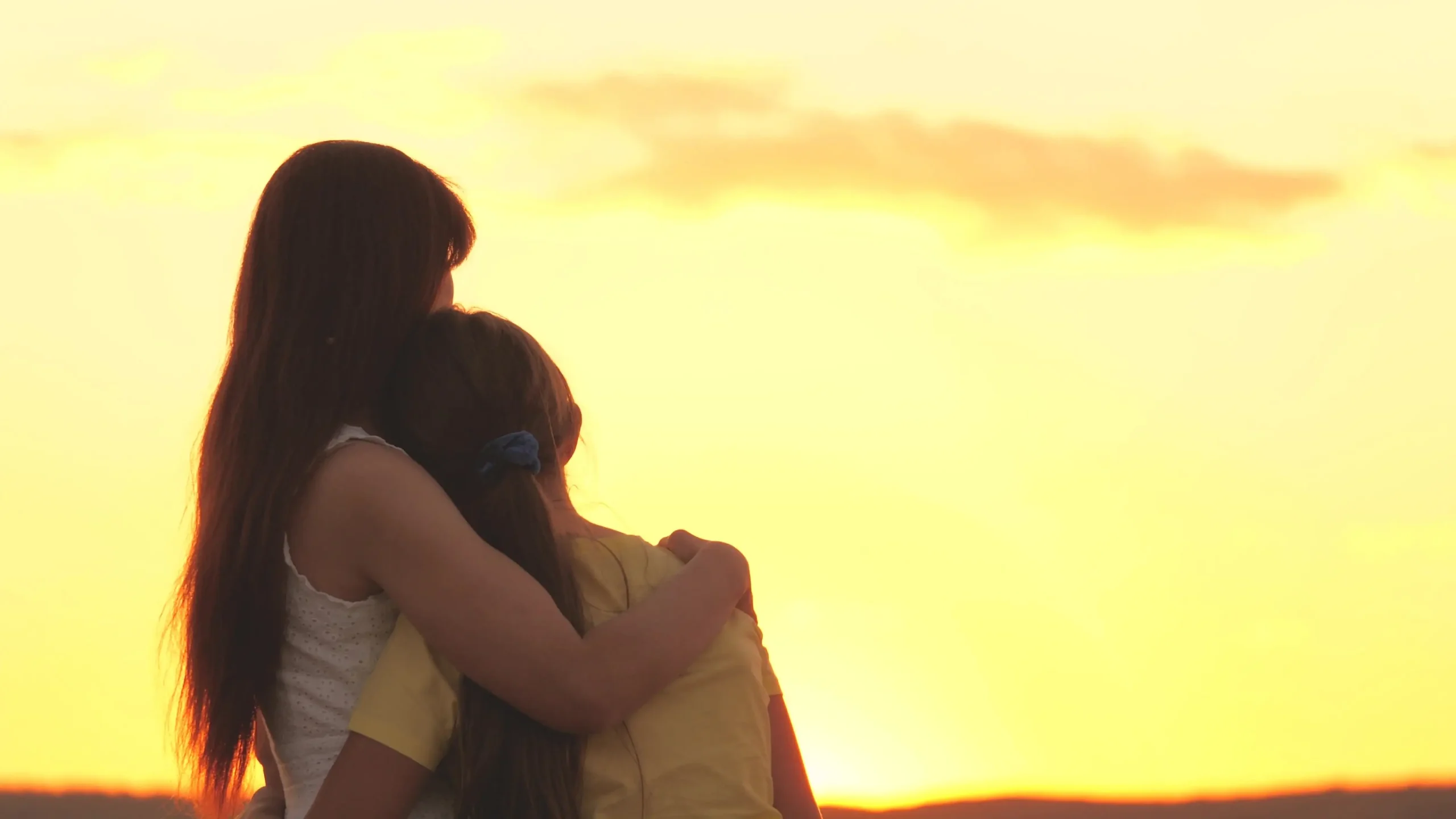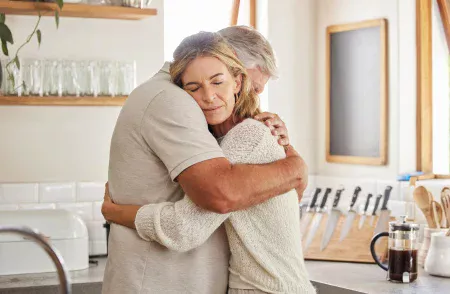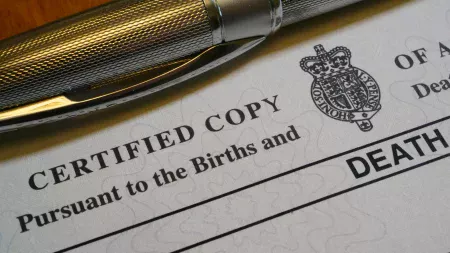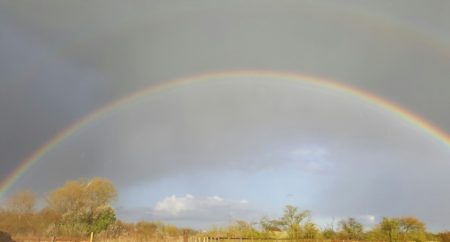Losing a loved one is an emotionally challenging time, and the practical steps that follow can feel overwhelming.
At Respect Funeral Services, we understand the importance of clear guidance to navigate this difficult period.
Whether you’re considering a direct cremation, direct burial, or a woodland green burial, this comprehensive checklist will help you manage the process with confidence and care.
Our goal is to support you every step of the way, offering environmentally conscious and dignified options tailored to your needs.
To assist you further, we invite you to download our free guide, What to Do When Someone Dies & the Three Things Not to Do, which provides a detailed roadmap for immediate actions and long-term considerations.
Below, we outline the key steps to take, incorporating insights from our guide and highlighting the green and direct funeral options we offer at Respect Funeral Services.
Immediate Steps After a Death
When someone passes away, the first few hours can be disorienting.
Acting promptly and systematically can ease the process. Our guide outlines the critical immediate actions, which we expand upon here.
1. Obtain a Legal Pronouncement of Death
The first step is to ensure the death is legally verified. The process varies depending on the circumstances:
- At Home (Expected Death): If the deceased was under palliative care, contact the provided 24-hour number to arrange for a nurse or doctor to verify the death. If not under palliative care, call 999 to request an ambulance service, which may send a paramedic, district nurse, or locum doctor. Be prepared for a wait of up to five hours, depending on the time of day.
- Sudden or Suspicious Death: If the death is unexpected, call 999 immediately. Police and paramedics will assess whether the body needs to be taken to the coroner’s mortuary or can be transferred to a funeral director.
- In a Care Home or Hospice: Notify the staff or nurse, who are authorised to pronounce the death.
This step is crucial to proceed with funeral arrangements and legal registration.
Our guide emphasises the importance of acting swiftly to avoid delays.
2. Arrange Transportation of the Deceased
Once the death is verified, the body can be transported to a funeral director’s chapel.
At Respect Funeral Services, we offer 24-hour transportation services to ensure the deceased is handled with dignity.
Call us at 01427 612992 to arrange this step.
Whether you choose a direct cremation, direct burial, or woodland green burial, we ensure the process is seamless and respectful.
3. Secure the Medical Certificate of Cause of Death
The person verifying the death will notify the deceased’s GP, who will issue a Medical Certificate of Cause of Death.
This is sent to a Medical Examiner, who will contact you to confirm the cause of death and ensure accuracy.
This certificate is essential for registering the death and proceeding with funeral plans.
4. Notify Close Family and Friends
Informing loved ones is an emotional but necessary task.
Delegate to a trusted family member or friend to share the news with others, reducing your burden.
This step, highlighted in our guide, fosters community support during a challenging time.
For detailed instructions on these immediate actions, download our free guide, What to Do When Someone Dies & the Three Things Not to Do.
Registering the Death
Registering the death is a legal requirement in the UK, typically required within five days of the Medical Examiner receiving the necessary paperwork.
This process ensures the death is officially recorded and allows you to obtain death certificates for administrative purposes.
How to Register the Death
- Contact from the Registrar: After the Medical Examiner reviews the Medical Certificate, the local registrar’s office will contact you to schedule an appointment. A family member or close friend should attend to register the death.
- Coroner Involvement: If the death is referred to the coroner (e.g., for sudden or unexplained deaths), they may conduct a post-mortem. Once complete, the coroner will issue an order for burial or cremation or pass details to the registrar.
- Required Information: Bring identification, the Medical Certificate (if provided), and details about the deceased (e.g., full name, date of birth, occupation). You’ll receive a death certificate and a certificate for burial or cremation (the “green form”).
Obtaining Death Certificates
Request multiple copies of the death certificate if you anticipate needing them for closing accounts or accessing benefits.
Our guide advises requesting only what’s necessary to avoid extra costs.
Arranging a Funeral: Green and Direct Options with Respect
At Respect Funeral Services, we offer a range of funeral options designed to honour your loved one while aligning with environmental values and personal preferences.
Whether you’re seeking simplicity or a meaningful ceremony, our services include direct cremations, direct burials, and woodland green burials. Below, we explore each option in depth.
Direct Cremation: Simple and Affordable
A direct cremation is a no-fuss option that involves cremation without a funeral service or attendees. This choice is ideal for those who prefer simplicity or wish to hold a memorial at a later date.
- What We Offer: We handle the cremation process with care, ensuring the ashes are returned to you or scattered respectfully, as per your wishes. You can choose a biodegradable urn for an eco-friendly touch.
- Benefits: Direct cremations are cost-effective and flexible, allowing you to personalise a memorial event separately. They also reduce environmental impact by avoiding embalming and elaborate coffins.
- Considerations: Discuss with family to ensure this aligns with their wishes. Our team can assist in planning a memorial if desired.
Direct Burial: Dignified and Straightforward
A direct burial involves burying the deceased without a formal ceremony, offering a dignified yet simple farewell.
- What We Offer: We arrange burial in a cemetery with a basic, eco-friendly coffin or shroud. This option is swift, respectful, and suitable for those who prefer minimal intervention.
- Benefits: Direct burials are environmentally conscious, avoiding cremation emissions and allowing natural decomposition. They’re also budget-friendly.
- Considerations: Check if the deceased had a preferred burial site. Our guide recommends reviewing any prepaid funeral plans to confirm arrangements.
Woodland Green Burial: A Natural Legacy
For those passionate about the environment, our woodland green burials provide a meaningful and sustainable option.
These burials take place in beautiful countryside settings, with a full ceremony included.
- What We Offer: We organise a complete burial service in a woodland or natural burial ground, using biodegradable coffins or shrouds. The ceremony can be tailored to reflect the deceased’s values, with options for readings, music, or a eulogy. The site becomes a living memorial, contributing to conservation efforts.
- Benefits: Woodland burials promote biodiversity and create a lasting legacy in nature. They’re ideal for those who cherished the outdoors or sought an eco-friendly farewell.
- Considerations: Discuss logistics, such as accessibility for attendees, with our team. We can help select a site and plan the ceremony.
To explore these options further and ensure you’re prepared, download our free guide, What to Do When Someone Dies & the Three Things Not to Do, which includes advice on choosing a funeral type.
Handling Practical Matters
Beyond funeral arrangements, several practical tasks need attention in the days and weeks following a death.
Our guide provides a comprehensive checklist, which we elaborate on here.
1. Care for Dependents and Pets
If the deceased had dependents or pets, arrange for their care immediately:
- Dependents: Coordinate with family or legal guardians to ensure children or vulnerable adults are supported.
- Pets: Family or friends can adopt pets, or you can contact local veterinarians, social media, or the RSPCA for rehoming. Our guide stresses the importance of swift action to ensure pets’ well-being.
2. Notify Employers and Check Benefits
If the deceased was employed, contact their employer to inform them of the death and inquire about:
- Outstanding wages or benefits.
- Life insurance policies or bereavement funds, especially with large employers like the NCB, British Steel, or MOD.
3. Secure the Deceased’s Home
Arrange for someone to oversee the deceased’s residence:
- Collect mail and redirect it via the postal service.
- Water plants, clear out perishable food, and maintain security.
- Notify utility companies to stop or transfer services, especially if the property is rented.
4. Manage Financial and Legal Affairs
For estates exceeding £6,750 in cash or £325,000 in assets, consult a trust and estates solicitor to handle probate. Other key contacts include:
- Banks: Check for safe deposit boxes and transfer or close accounts.
- Life Insurance Companies: Obtain claim forms.
- Pension Providers: Stop payments and request claim forms.
- Tax Professionals: Determine if a final income-tax or estate-tax return is needed.
- DWP and Social Security: Notify them to stop benefits.
5. Close Digital Accounts
The deceased may have social media profiles (e.g., Facebook, Twitter, LinkedIn) or other online accounts. Close these promptly to prevent misuse:
- Use online resources to access and cancel accounts.
- Inform followers or members of the closure, if appropriate.
- Register with the Bereavement Register to stop junk mail.
Our guide provides a detailed checklist for these tasks, ensuring nothing is overlooked. Download it now to stay organised.
Three Critical Mistakes to Avoid
Our guide highlights three key mistakes to steer clear of, which can complicate the process if ignored:
- Failing to Inform Legal and Government Agencies: Delays in notifying the registrar, DWP, or banks can lead to legal or financial issues. Register the death within five days and contact relevant institutions promptly.
- Neglecting Bank or Financial Matters: Unattended accounts or unclaimed benefits can cause complications. Act quickly to secure assets and close accounts.
- Forgetting to Arrange Funeral Finances: Without a prepaid plan, ensure funds are available for a direct cremation, direct burial, or woodland green burial. We can help tailor a service to your budget.
Why Choose Respect Funeral Services?
At Respect Funeral Services, we prioritise dignity, sustainability, and affordability.
Our direct cremations, direct burials, and woodland green burials cater to diverse needs, ensuring your loved one’s farewell reflects their values. Here’s what sets us apart:
- 24-Hour Support: Call us anytime at 01427 612992 for immediate assistance.
- Eco-Friendly Options: Our green burials and biodegradable materials minimise environmental impact.
- Personalised Care: From simple direct options to meaningful woodland ceremonies, we tailor services to your preferences.
- Comprehensive Guidance: Our free guide, What to Do When Someone Dies & the Three Things Not to Do, equips you with the knowledge to navigate this process confidently.
Navigating the aftermath of a loved one’s passing is challenging, but you don’t have to do it alone. Download our free guide for a detailed checklist covering immediate actions, funeral planning, and practical tasks. This resource, combined with our compassionate services at Respect Funeral Services, ensures a dignified and stress-free process.
Get Started With Respect Unattended Funerals
If you’re considering an unattended funeral or want to learn more about our woodland green burials, contact Respect Funeral Services at 01427 612992 or contact us directly at respectgb.co.uk/contact to learn how we can help you plan a dignified, eco-friendly farewell.
Q&A’s For What To Do When Someone Dies
Q1. What is the difference between a direct cremation and a woodland green burial?
A direct cremation involves cremating the deceased without a funeral service or attendees, offering a simple, cost-effective, and eco-friendly option. The ashes can be returned to you or scattered respectfully, often in a biodegradable urn. In contrast, a woodland green burial is a full-service burial in a natural setting, such as a countryside burial ground, with a personalised ceremony. At Respect Funeral Services, we offer both: direct cremations for those seeking simplicity and woodland green burials for those wanting a sustainable, ceremonial farewell. Both options prioritise environmental care, but the choice depends on your preferences for ceremony and memorialisation. We also offer direct burial which still involves a burial in beautiful woodlands without the ceremony.
Q2. How soon after a death do I need to arrange a funeral?
In the UK, you typically have up to two weeks to arrange a funeral, as the death must be registered within five days, and funeral planning can follow. However, at Respect Funeral Services, we recommend contacting us as soon as the death is verified to ensure a smooth process. For direct cremations or direct burials, arrangements can be made quickly, often within days. Woodland green burials may require additional planning for the ceremony and site selection. Our 24-hour support (01427 612992) ensures we’re available to guide you promptly.
Q3. Can I personalise a direct cremation or direct burial with Respect Funeral Services?
Yes, while direct cremations and direct burials are designed for simplicity, we offer flexible options to personalise them within the framework of these services. For a direct cremation, you can choose a biodegradable urn or specify where the ashes are scattered. For a direct burial, you can select an eco-friendly coffin or shroud and, if desired, hold a separate memorial event. While these options don’t include a formal ceremony, our team at Respect Funeral Services works with you to honour the deceased’s wishes.
Q4. What should I do if the deceased had no prepaid funeral plan?
If there’s no prepaid funeral plan, don’t worry, Respect Funeral Services can help you arrange a fitting farewell. Start by checking the deceased’s documents for any expressed wishes, as advised in our guide. Then, contact us at 01427 612992 to discuss options like direct cremation, direct burial, or a woodland green burial. We’ll guide you through selecting a service that aligns with your budget and the deceased’s values, whether it’s a private unattended funeral or a full-service green burial. Our guide includes a checklist for arranging a funeral without a plan. Download it here.
Q5. Why choose a green burial over a traditional funeral?
A green burial, such as the woodland green burials we offer at Respect Funeral Services, is an environmentally friendly alternative to traditional funerals. It uses biodegradable coffins or shrouds, avoids embalming, and takes place in natural settings, promoting biodiversity and conservation. Unlike traditional funerals, which may involve non-degradable materials and higher environmental impact, green burials create a living legacy in nature. They also include a full ceremony, making them ideal for those who value sustainability and a meaningful farewell.
Book A Visitation At One Of Our Burial Parks
North Nottinghamshire & South Yorkshire Burial Park
Lincolnshire & North Lincolnshire Burial Park
Contact Respect Directly
After Care
If you need extra help, there are excellent resources available:
- NHS: The NHS offers advice on coping with bereavement, including mental health support. Visit their page on Dealing with Grief and Loss for practical tips and helpline details.
- Respect: the Respect Guide, What To Do When Someone Dies covers benefits like the Bereavement Support Payment.
- Cruse Bereavement Support: A UK charity dedicated to grief, Cruse provides free counselling and resources. Learn more at cruse.org.uk.
- Bereavement Advice: Documents needed for arranging a funeral
- GOV: See if you qualify for a Funeral Expense Payment from the government.





